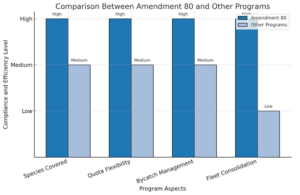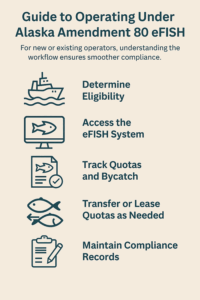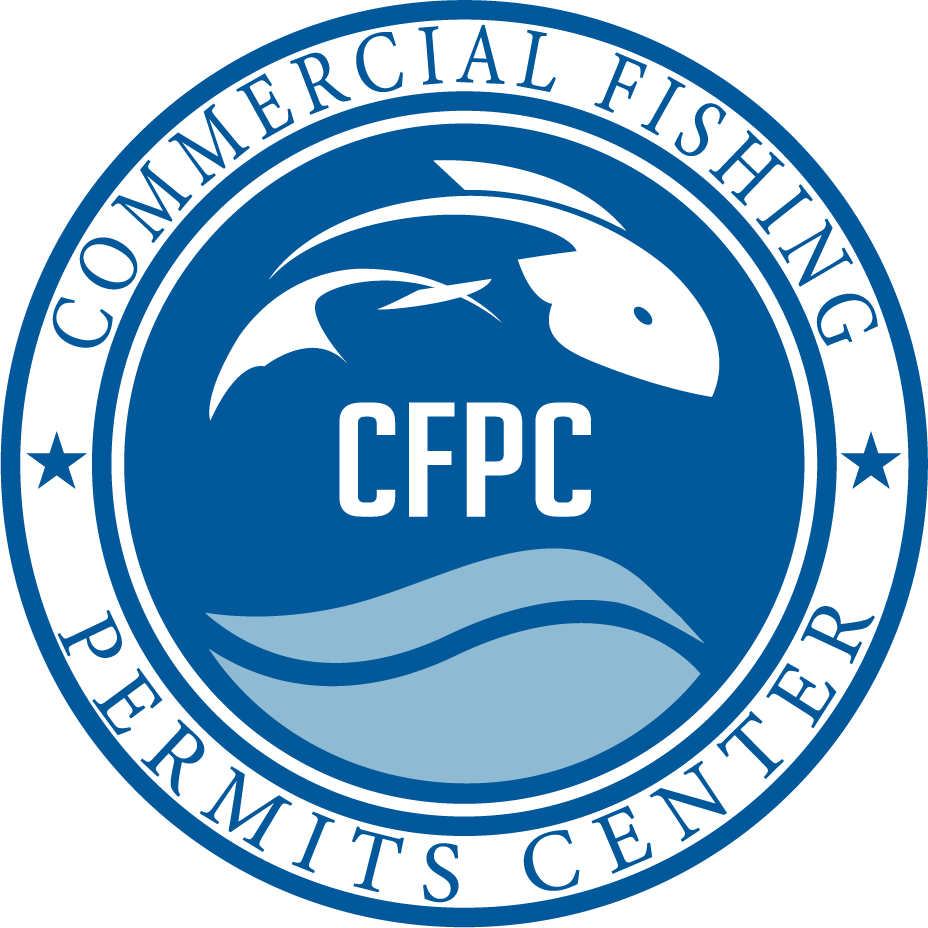Commercial fishing is one of the main sources of income in Alaska and also supplies seafood to the rest of the world. The Alaska Amendment 80 Efish system is one of many regulatory frameworks that are of great significance for fleet operators, quota managers, and stakeholders. This program was created to facilitate the distribution of resources, to save time and to ensure the practice of sustainable fishing in the Bering Sea and Aleutian Islands (BSAI) groundfish fisheries.
Amendment 80 is a program that is administered through Efish (the electronic reporting system) which is allowed to allocate fishing quotas to vessels and companies that meet the requirements. These quotas specify certain species such as Atka mackerel, yellowfin sole, and Pacific Ocean perch. By being involved in the program, those who operate the fishing will be able to take part in the distribution of resources on an equitable basis, as well as complying with the set conservation targets.
This blog post will familiarize readers with the definition that the Alaska Amendment 80 Efish is, what it is, and why it is the case. Also, the readers will find comparisons with other quota programs, step-by-step guidance for compliance, and practical tips for maximizing efficiency under this framework.
Understanding Alaska Amendment 80 Efish
The Alaska Amendment 80 program was designed to strike an equilibrium between commercial fishing opportunities and the management of groundfish stocks in a sustainable way. The system for online reporting and management of Efish, guarantees the accuracy and efficiency of quota allocation and monitoring.
Purpose of the Program – Alaska Amendment 80 Efish
- The program was designed to:
- Improve utilization of fishery resources.
- Allocate catch quotas fairly among industry participants.
- Support long-term conservation and bycatch reduction efforts.
- Encourage fleet consolidation for efficiency.
Eligible Species
Under Amendment 80, quotas are allocated for certain groundfish species critical to Alaskan fisheries. These include:
- Atka mackerel
- Pacific Ocean perch
- Aleutian Islands flatfish
- Yellowfin sole
- Rock sole
| Feature | Description | Impact on Operators |
|---|---|---|
| Quota Allocation | Divides quotas among eligible vessels/companies | Ensures fair and sustainable harvesting |
| Efish System | Online management and reporting tool | Improves transparency and efficiency |
| Bycatch Management | Limits and monitors bycatch levels | Promotes sustainable fishing practices |
| Fleet Consolidation | Encourages efficiency among fewer active vessels | Enhances profitability and cost control |
This structured approach ensures compliance with conservation priorities while supporting economic opportunities.
Compliance and Operational Aspects of Alaska Amendment 80 Efish
Participation in Alaska Amendment 80 Efish requires strict adherence to reporting, quota use, and monitoring rules.
Reporting and Monitoring
The Efish system is central to compliance. Operators must report landings, quota transfers, and bycatch in real time. This electronic system eliminates delays and reduces the risk of errors in paper-based reporting.
Quota Transfers and Leasing
One of the key features of Amendment 80 is the ability to transfer or lease quotas between companies. This flexibility allows operators to adapt to market conditions while maintaining compliance with harvest limits.
Bycatch Reduction Measures
Bycatch management is a cornerstone of the program. Strict bycatch caps on species such as crab and halibut ensure that groundfish harvesting does not harm other critical stocks. Operators must track bycatch closely through Efish to remain within allowable limits.
Legal and Financial Implications
There is a chance that not meeting the deadlines for reporting or surpassing your quota allocation can lead to a punishment in the form of a fine or a penalty or the suspension of your fishing rights. Because of this, the operators are usually investing in the staff that is specialized in compliance or in the digital systems that will ensure the accuracy of the data.
Comparing amendment 80 with other programs
Commercial fishing in Alaska goes through several different quota and licensing systems. Operators can compare how Amendment 80 fits into these to understand better the effects of their decisions.
Amendment 80 vs. American Fisheries Act (AFA)

The AFA is responsible for the pollock fisheries, whereas Amendment 80 dealt with non-pollock groundfish. Both of them are monitoring the bycatch and providing a way of sustaining the marine resources, however, their target species and quota differ in structure.
- Amendment 80: High in quota flexibility and bycatch management.
- AFA: High in fleet consolidation and pollock-specific management.
- Other Groundfish Programs: Moderate across aspects.
This comparison shows how Amendment 80 provides unique flexibility through transferable quotas and real-time electronic monitoring.

Guide to Operating Under Alaska Amendment 80 Efish
For new or existing operators, understanding the workflow ensures smoother compliance.
Determine Eligibility
Only certain vessels and companies are eligible for Amendment 80 quotas. Confirm eligibility with regulatory authorities before applying.
Access the Efish System – Alaska Amendment 80 Efish
Register for the electronic system to manage quotas, track landings, and file reports.
Track Quotas and Bycatch
Maintain accurate, real-time records of both allocated catch and bycatch Efish.
Transfer or Lease Quotas as Needed
Use Efish to transfer quotas between companies to optimize fishing opportunities.
Maintain Compliance Records
Keep copies of reports, quota allocations, and transactions for auditing purposes.
Quick Checklist
- Verify eligibility before fishing.
- Register with Efish early.
- Monitor bycatch closely.
- Keep compliance records updated.
Following these steps ensures both profitability and regulatory security for operators.
Why Alaska Amendment 80 Efish Matters
The Alaska Amendment 80 Efish program is not just a quota system—it is a tool that balances economic opportunity with conservation responsibility. By giving quotas in a fair manner, lowering the unintentional catch, and allowing electronic reporting, the program is a win for both the industry and the resources in the long run.
The success of operators is heavily reliant on accurate reporting, efficient use of quotas, and compliance on a continuous basis. Efish system, if properly used and businesses prepared right, can not only make them flourish but also contribute to the well-being of Alaska’s fisheries.
By learning the ins and outs of the program of Commercial Fishing Permits Center and adhering to the best practice principles, all the stakeholders will be assured of their competitiveness, compliance, and sustainability in the fishing area which is ranked among the top in the world.


No Comments
Be the first to start a conversation